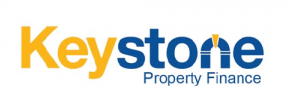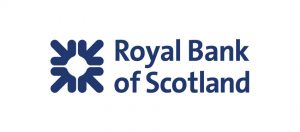Choosing to embark on a new life chapter is always exhilarating. Making the decision to buy or sell a property is one such life decision which should be infused with pleasure and excitement. Unfortunately, with all the formalities that need to take place through the process of buying and selling property, this excitement becomes blurred with immense stress. The uncertainty surrounding the initial process, dealing with mortgage and everything leading up to completion can be very overwhelming.
At White Horse Solicitors & Notary Public, we relieve you of such burdens. Our expert team of highly experienced property solicitors/ lawyers will smooth out the process for you by dealing with all your needs with full clarity; each process in your property transaction will be explained in clear, understandable language with translation when possible. Our property solicitors will provide excellent service and solutions for any queries you may have to your unique situation. We take pride in looking after all of your legal concerns leaving you to do nothing but enjoy preparations to move in to your new home.
White Horse Solicitors & Notary Public are accredited solicitors under the Law Society’s Conveyancing Quality Scheme (CQS), and are entitled to display the Quality Conveyancing Scheme accreditation mark in relation to our residential property conveyancing services.

As an accredited member of the Law Society’s CQS; this provides a recognised quality standard for residential conveyancing practices. Our firm therefore establishes a level of credibility for clients and other stakeholders such as regulators, lenders and insurers.
CQS has annually deterred fraud since opening in 2011. This has built a trusted community while continuously improving standards of residential conveyancing sector.
Being a member of the CQS proves that our firm has all necessary skills and expertise to provide residential conveyancing advice. Our clients can feel assured that they will receive no less than the best guidance to understanding information related to the process, options, costs and timescales from the outset. Being a CQS member also allows us to remove barriers and reduce complaints by educating clients about the conveyancing process.

We at White Horse Solicitors & Notary Public value our clients time and energy therefore have minimised any exhaust one may face in reaching out to us. We ensure that our busy clients will not have to deal with frustrations of being unable to contact the necessary solicitor to find out the status of one’s case. We therefore establish an extremely user friendly system for our clients. Access is given to a personal Online Portal with unique User Names and Password whereby case progress can be tracked at any time at the client’s convenience. We work tirelessly ensuring you get a speedy service on great quality of work; you can have peace of mind knowing you are in safe hands. You can also take ease by receiving real time notifications on our firms own branded App which you can download from Google Play Store or the Apple App Store.
We offer competitive pricing on all our conveyancing services. Whether you want to buy, refinance or sell a house, our services are for you.
Our Property Solicitors can provide conveyancing services in the following categories:-
- Freehold and Leasehold Purchases
- Freehold and Leasehold Sales
- Re-mortgage/ Re-finance transactions
- Purchase/ Sale/ Refinance of Buy to Let Properties
- New Build Properties
- Right to Buy transactions
- Property Auctions
- Lease Extensions
- Government backed Help to Buy Schemes
- Transfer of Equity
- Matrimonial Transfers
- Shared Ownership Schemes
- Deed of Gift and Declaration of Trust
- Co-ownership:
- Resolving disputes between co-owners/ partners
- Advising on Joint Tenancy and Tenancies in Common
- Severance of Joint Tenancies
- Leasehold Enfranchisement- including buying the Freehold interest / buying a new long leasehold
- Equity Release Schemes
- Drafting Residential Tenancy Agreements
The above list is not intended to be exhaustive but an indication of the most popular areas of conveyancing. If your matter relates to anything in relation to a Property- please do get in touch with us so we can assist you.
FAQs:
Residential Conveyancing is the legal process of purchasing or selling a house. Most people use solicitors to act for them on a house sale or purchase, because they are not adequately conversant with the process. In addition, if you are purchasing with a mortgage, your Lender will require a solicitor to be appointed to act for and on their behalf to also act in their best interest and make sure the Title to the Property is suitable for lending purposes.
1. Quote – you will be supplied an initial quote.
2. Memorandum of Sale – once sale is agreed the estate agent supplies the Memorandum of Sale to the parties. This provides the full details of the transaction and allows the solicitors to start progressing the transaction.
3. Open the Purchase File – Firstly, the conveyancer will open the purchase file for your new property. This involves sending you a letter to explain the terms of business and request items such as ID, evidence of source of funds and a payment on account. In addition, you will complete a purchase questionnaire allowing you to raise any queries you have regarding the property. At this stage, you will be given a fixed fee estimate based on the information provided. The cost can change if the legal work becomes complicated.
4. Contracts – Your conveyancer will receive the drawn-up draft Contract Pack from the seller’s solicitor.
The Contract Pack is typically made up with the following documentation:
Draft contract
Office copies and title plan
Property Information Form (information form completed by seller about the property)
Fittings and Contents Form (form completed by seller confirming what will be left at the property i.e. cooker/washing machine/beds etc)
Energy Performance Certificate (EPC)
Any supporting documents such as warranties, guarantees, planning permission and building regulations.
If Leasehold there will also be a copy of the Lease as well as key information from the Landlord such as a Management or a Re-Sales Pack.
5. Title check – on receipt of the contracts your conveyancer will check all documentation to make sure nothing is missing and there are no problems with the title.
6. Conduct Searches– This is a vital part of the conveyancing and property search process. The searches done on most properties are as follows:
- Local Search – this search confirms if the road at the property is maintained by the Local Authority or if it is private. It also confirms any Planning/Building Regulations applications amongst many other important things.
- Drainage Search – this search confirms if the drains are maintained by the water board or are private. It also confirms the location of water/sewage pipes.
- Environmental search – provide details of the property and surrounding areas in relation to possible contaminated land and flooding amongst other issues.
- Chancel Search – The historic nature of chancel repairs means many liabilities are not recorded on title deeds, but they remain legally enforceable. A Chancel Check report will reveal whether a property is within a parish where a potential chancel repair liability exists.
7. Mortgage offer – if the transaction is being part funded by a mortgage your conveyancer will check the mortgage offer to make sure all details are correct and deal with the lenders standard and special conditions.
8. Investigation of Title – Your conveyancer will provide expert legal advice and raise queries on not only the title to the property but also in relation any of the searches carried out.
9. Stamp Duty Payment– The conveyancer will calculate and pay the stamp duty bill on your behalf.
10. Financial Statement – The conveyancer will ask for your deposit being 10% of the purchase price and will arrange to transfer the funds to the seller’s solicitor on completion.
11. Exchange of contracts – once your conveyancer is satisfied that all queries and issues are resolved on your transaction you will be asked to sign the contract documentation. Exchange of contracts is when all parties formally agree to the completion date. When you exchange the completion date is fixed. Exchange and completion can be on the same day as exchange or there can be an agreed amount of time between exchange and completion.
12. Completion – once exchange has taken place you will receive your keys on the day of completion. Your conveyancer will ensure that mortgage funds are drawn down in time for completion. You will collect the keys from the estate agent when the funds have been received by the seller’s solicitor.
13. Post Completion – once completion has taken place your conveyancer will pay the Stamp Duty Land Tax (if applicable) to HMRC on your behalf and apply to HM Land Registry to register your ownership of the property. This will take several months after completion. You will however become the legal owner of the Property from the date of completion of the sale.
The process usually takes between 8 and 12 weeks to complete, but can vary depending on specific individual properties. Occasionally the process can take longer to complete if there are any issues arise during the Investigation of Title which will need to be resolved before progressing to completion. Transferring a property from one owner to another is complex and requires a lot of work. When you buy a property, you will need a conveyancer or property solicitor to complete the residential conveyancing process efficiently but at the same time with the required care and diligence. The importance of property conveyancing is to ensure an individual buys a property that has no unknown restrictions or problems and the property will sell without any issues later on.
Exchange of contracts is the point at which a property transaction becomes legally binding. Both parties are contractually bound to finalise the sale/purchase on the agreed completion date.
If either party were to pull out after exchange, there would be penalties. Once you have exchanged contracts you will be in a legally binding contract to buy the property. If you do not you will lose your deposit and you can be sued. Equally though, the seller has to sell or you can keep their deposit and sue them. A remedy of ‘Specific Performance’ can also be sought against you for damages accumulating to the total amount of the contracted amount.
The main difference between exchange and completion is that ‘exchange’ is an exchange of contracts, which makes the matter legally binding between the parties, whereas ‘completion’ is the date the parties physically move and transfer legal ownership of the property.
Get an instant quote online immediately:
Whether you’re Buying, Selling or Re-mortgaging – you can use our website to get a transparent instant online quote that clearly lists disbursements such as searches, Land Registry fees and Stamp Duty payable. If you prefer to speak to us please call our Residential Conveyancing department by dialling 020 7118 1778





























